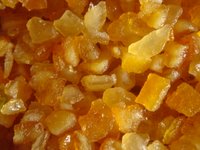Trick of the tail
 October 20th: the final day of treatment. To mark the occasion and to catch one more installment of the radio-lab waiting room theatre-show, I accompany Major on the last of his pilgrimages to the healing waves. Autumn sunshine obligingly paints the delights of the journey gold, and roadworks have begun in several places along the way causing queues where until today there have been none, the cycles of repair neatly taking over one from another.
October 20th: the final day of treatment. To mark the occasion and to catch one more installment of the radio-lab waiting room theatre-show, I accompany Major on the last of his pilgrimages to the healing waves. Autumn sunshine obligingly paints the delights of the journey gold, and roadworks have begun in several places along the way causing queues where until today there have been none, the cycles of repair neatly taking over one from another. Major is now 2 1/2 stone under his normal weight and supermodel thin. It suits him in a pale and interesting sort of way; if only he'd wear nice shirts he might pass for an ectomorphic Oxbridge prof. He is bony and fragile to hold, making me understand how wonderfully healthy thick flesh feels on a body. I consider making a chicken stock to supplement his milky courier-delivered "fortisip" but worry that the fat globules will bung up his PEG. My specially created, mega-fattening avocado and milk mush is rejected purely on the grounds of its unappealing colour (70's chemical green; totally un-F&B, despite the natural ingredients). This, I feel, as I watch it sink into the rose bed, is the behaviour of a 3 year old since the PEG bypasses any sensation of taste and it would have done him GOOD. Oh well, must respect the patient's wishes, and, to be honest, I didn't really fancy it either.
The weekend passes with nothing much but the compiling of a huge shopping list, mostly goodies for Delia's mincemeat and Christmas cake, but also odd little essentials; socks, watch batteries, floor mop... There is going to be a big shopping expedition featuring Major's favourite food, MIXED PEEL, which usually at this time of year he'd be sneaking into the kitchen to eat straight from the pot with sticky fingers. We will experience a return to normality now that treatment has finished, a celebratory afternoon out in Hastings.
Major drives and makes a return trip on foot from the car park to ESK (fab discount emporium) to get change for the machine while I browse shelves full of all the cut price crap anyone could wish for in a lifetime. In Trinity Wholefoods he holds the baskets like a dutiful butler and I pile them high with yummies above and beyond Delia's requirements, the rapacious wife of Jack Spratt. But after Woolies, in the third jewellers on the watch battery quest, he has to sit down. His wax jacket stays stiff and large around him as he disappears into it on the chair, half little old man, half tortoise. He is a pale shade of yellow. He lets me drive home.
The next day he visits the GP, the first appointment since April, when he was told for the third time, "No, I'm sure you haven't got cancer". The vein in his arm where the PIC-chemo line went is showing as a dark streak through his skin, and he feels so weak and cold, more spittle than ever.... The GP says this is all to be expected after such treatment. I ask whether he apologized for the mis-diagnosis, "No, but he smiled a lot and was very gentle."
It's only now, at the end of treatment, that we are told things will get worse for a couple of weeks before they improve, or perhaps it's that we are only taking the information on board as Major is feeling so unexpectedly grim. I imagine that the radio waves, having accumulated in his neck over the last 7 weeks, are dancing out a wild and exhausting frenzy of squiggles to white noise, untamed and free now from the machine that created and administered them. (Have I just described sperm?! These are the negative of sperm, going in for the kill rather than creation, yet the result also being life.)
I leave for a weekend of work on Friday, assuaging desertion-guilt with the hope that Major will be more comfortable in complete silence. He says that he's listening to his body and his body says "sleep". On Sunday evening I return to find that there has been an amelioration; talking seems slightly easier and he is not so listless. He's halved the time the hospital said it would take to turn the corner out of the grim stage, and I'm impressed by his strength. He is reappearing.



